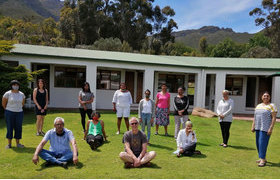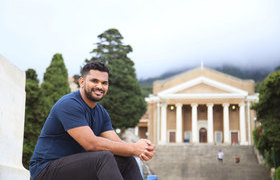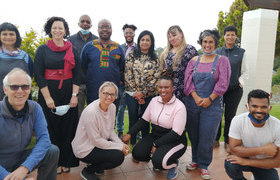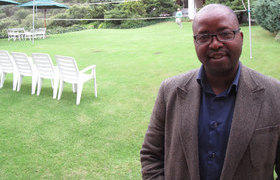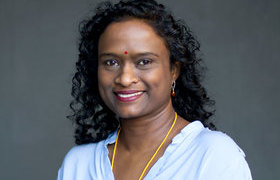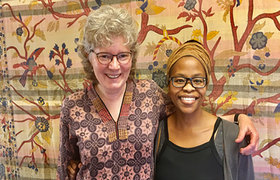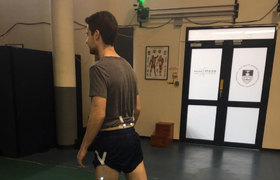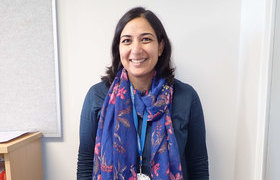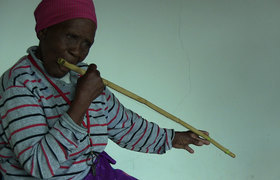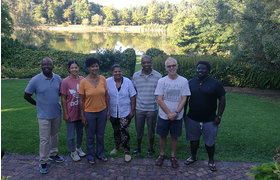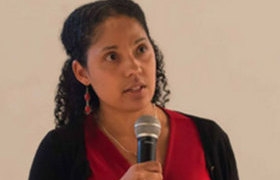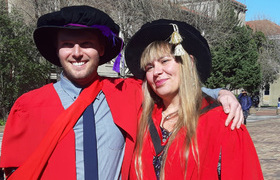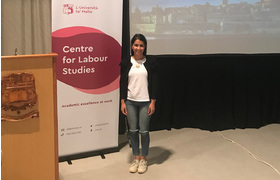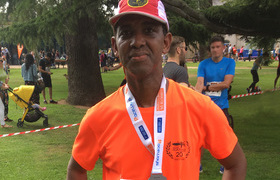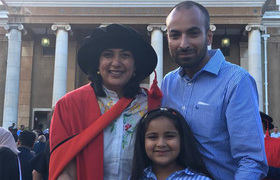NGP members Conferencing around the Globe
21 August 2019 | Story Robert Morrell. Photos Supplied. Read time 5 min.
NGP members have been presenting papers in various parts of the world. In this story we find Ameeta Jaga (Organisational Psychology) in Malta, Nomonde Mbatani (Obstetrics and Gynaecology) in Colombia and Zarina Patel (School of Environmental and Geographical Sciences) in Sweden and the US.
Ameeta Jaga
In June Ameeta was invited to give a keynote lecture to the 8th International Community, Work and Family Conference at the University of Malta. Her lecture was titled “Something new from the South: work, family and community in South Africa”.
Ameeta has developed an interest in Southern Theory, particularly the theoretical work of Raewyn Connell. She has contributed to the NGP reading group on Southern Theory noting how useful it is in giving emphasis to the importance of location and the inequalities in knowledge production.
“This body of work resonated with me and I began experimenting with it in my own work on the work-family interface and supporting breastfeeding at work in the context of low paid work. I saw this as an opportunity to show that by mobilizing Southern Theory, I can offer something new to studies of Work, family and community.
“I grappled with questions such as Why are voices from Africa on work, family and community still largely missing especially since the notions of these concepts in the African context are so culturally, geographically and ethnically varied? and What is knowledge for?
“Preparing the keynote was challenging as I had to make sense of my own positionality and how this has changed in the recent period, how it has been influenced by my upbringing and my location as a black South African, but it was also an inherently rewarding experience and well received at the conference.”
Nomonde Mbatani
Nomonde Mbatani attended the conference of International Federation of Cervical Pathology and Cytology (IFCPC) in Cartagena, Colombia in March. She is a member of the Federation’s Board and represents Africa. Her role as part of the international board was to discuss guidelines regarding management of particular risk groups diagnosed with premalignant cervical lesions. These guidelines will be finalised at the next conference in 2020 in India. This meeting was hosted by the Latin American Colposcopic Societies and was attended by 800 delegates.

Cervical Cancer is the second commonest cancers affecting women in Sub-Saharan Africa and world-wide. World-wide, at least 500 000 new cervical cancers are diagnosed each year.
Screening for cervical cancer pre-cancerous lesions is the most effective methods of preventing the disease. The IFCPC is an international society of Colposcopic societies. The aim of the society is to standardize terminology, diagnostic evaluation and treatment of pre-cancer lesions which in turn will prevent progression of these lesions to full blown cancer.
The high incidence of HIV in South Africa means that it is important to pay special attention to the management of immune compromised patients. Nomonde’s input to the future guidelines centred on this challenge although she also gave a lecture on lower genital tract diseases affecting immune-compromised individuals.
Zarina Patel
Zarina Patel spent the first half of 2019 on sabbatical and made excellent use of her time by attending various international meetings. She is a member of the Global Futures Council on Cities and Urbanisation. In April she was in Boston and participated at the Forum on Future Cities: Urban Intelligence (UI).
At the meeting, she recorded a podcast reflecting on urban intelligence in African Cities and contributed to the process and drafting of a white paper ‘Smart at Scale: 25 Winning Cities.’ (which includes cases featured in the City of Cape Town’s Mayor’s Portfolio on Sustainability Projects – on which she serves as an advisory member).
The following month, in May, she participated in a conference hosted by SIDA (the Swedish aid funders) in Stockholm – SIDA Science Days - where she was the respondent to a panel on Transdisciplinary and Interdisciplinary research. Her response has been published as a blog - The triumphs and trials of transdisciplinary research: reflections on the un-disciplining of disciplines. Published on social media by the International Science Council, May 2019.
 This work is licensed under a Creative Commons Attribution-NoDerivatives 4.0 International License.
This work is licensed under a Creative Commons Attribution-NoDerivatives 4.0 International License.
Please view the republishing articles page for more information.
Next Generation Professoriate (NGP)
The Next Generation Professoriate (NGP) is a mid-career academic staff development and support programme. Funded by the vice-chancellor’s Strategic Funds, the NGP addresses demographic inequalities in the academic hierarchy. The goal is to help members become associate and full professors.
The NGP was officially launched in September 2015. By the end of 2018, four of its members had been promoted to full professor and a further 14 had reached the rank of associate professor.
The programme is led by Dr Robert Morrell, who has over 35 years of academic experience in South African universities. He has a B1-rating from the the National Research Foundation (NRF) and is an elected member of the Academy of Sciences in South Africa.
Newsletters
In the news

